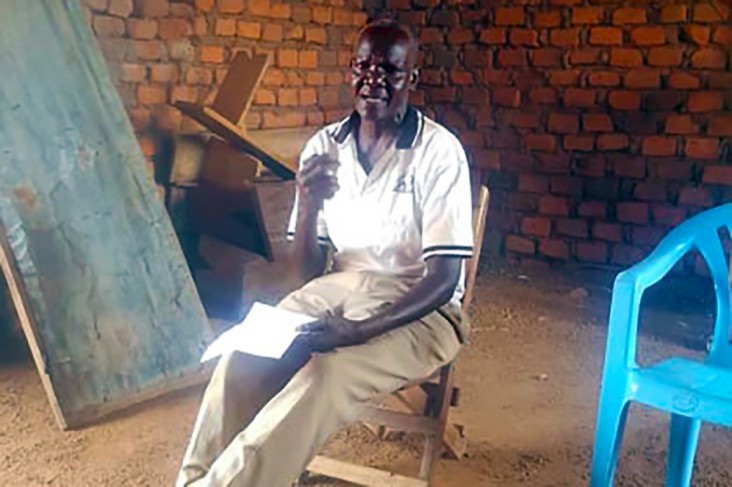Speeches Shim

In some of the poorest and most vulnerable regions in Uganda, where people lack basic necessities such as food and running water, access to information is also difficult. The role of local traditional leaders as trusted messengers is essential, particularly during crises such as COVID-19. USAID’s Integrated Community Agriculture and Nutrition Activity, or ICAN, partners with cultural and traditional leaders as key change agents.
USAID/ICAN works with cultural institutions such as rwots—chiefs in the Acholi subregion in northern Uganda— to demonstrate to communities vital practices like handwashing that will ensure their safety and survival. Cultural leaders and their institutions are custodians of tradition, responsible for promoting and upholding their heritage on behalf of their communities. The leaders command respect and have enormous influence.
“When we go out, the community respects us even more, because they think we knew these things. Yet, we learned everything from ICAN,” Rwot Okwero Edward, Chief of Paloga explains.
Ms. Patience Akumu, USAID/ICAN’s Communication Specialist says people listen to cultural leaders because of the respect they command. “To sell an idea to cultural leaders is to sell it to the people. And when the people are interested, the government notices. It is by using the modest yet powerful institution of cultural leaders that this USAID project has been able to build resilience in the community, creating self-reliance, ensuring sustainability and linking local government to communities,” Akumu says.
USAID works with rwots to share messages including health advice for pregnant women, how to access maternity services, and the importance of nutrition in boosting immunity, especially among women and children. In addition, cultural leaders inform families of various issues they face during the lockdown, such as children’s continued education through radio classes, domestic violence, and how to make businesses resilient by trading and using cellphones for payments.
The essential role rwots play stood out in environmental conservation, where USAID/ICAN worked with them to pass a by-law against charcoal burning. The rwots did not stop at passing a law. Across Lamwo, Gulu, and Nwoya districts, USAID/ICAN worked with 48 rwots to promote tree planting. The Pakinyi clan in Agoro, under the leadership of Rwot Ajwiya, provided land for the community to plant 13 acres of teak trees, and are working with the government forestry department to plant 10 more acres. This is a demonstration of the rwot’s commitments to resilience and improving the environment, and fortifies the community’s belief that rwots are committed to the development of their communities. They live within the community and are determined to deliver transformation.
USAID/ICAN has also facilitated gender training for rwots, making them allies in pushing for gender equality in communities. Rwots have learned to organize dialogues, develop messages, and carry out public campaigns. Rwot Okwero, who has been instrumental in engaging child rights clubs to plant trees, is emphatic that culture and development are not mutually exclusive. “ICAN has strengthened the capacity of chiefs, making us more knowledgeable. I have learnt that culture must support development,” Rwot Okwero says.
Rwot Okwero further says his biggest lesson was accepting that women, too, are important for development and building resilience. “From ICAN, I have learned about women’s rights. They made me realize that women can sit at a meeting and even be a clan head. Now I go from home to home telling people that they must educate our girls because they are our future leaders. It is the women who look after the home, the gardens, and the trees we plant. If we do not work with them, we cannot save ourselves or our environment,” he adds.
USAID’s Integrated Community Agriculture and Nutrition Activity focuses on improving the ability of households to withstand, mitigate, and recover from unexpected shocks and crises. Continued collaboration with the modest yet powerful institution of cultural leaders as agents of change will strengthen household resilience and benefit the entire community.

Comment
Make a general inquiry or suggest an improvement.